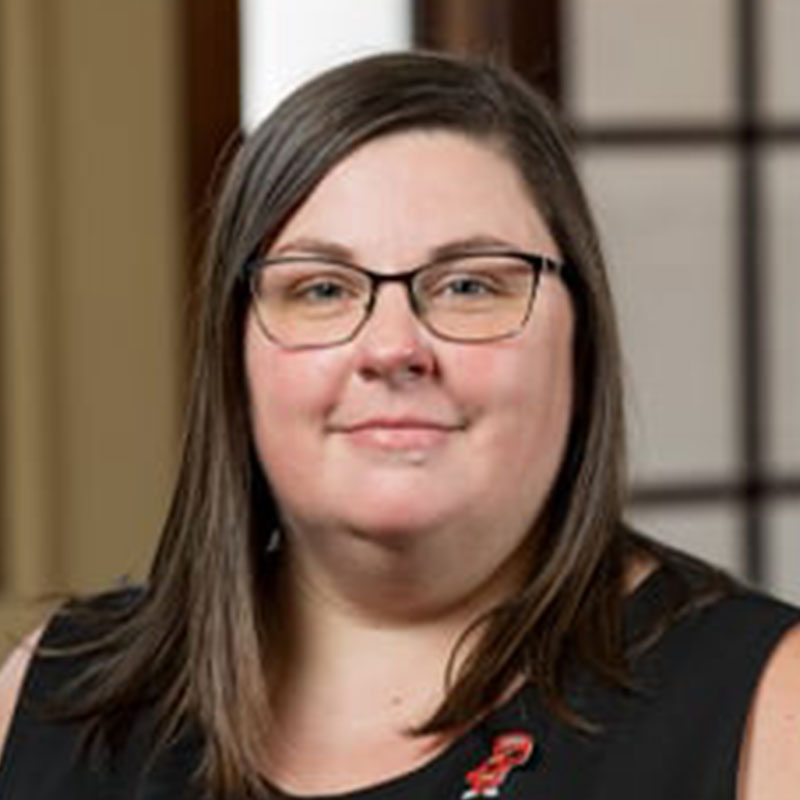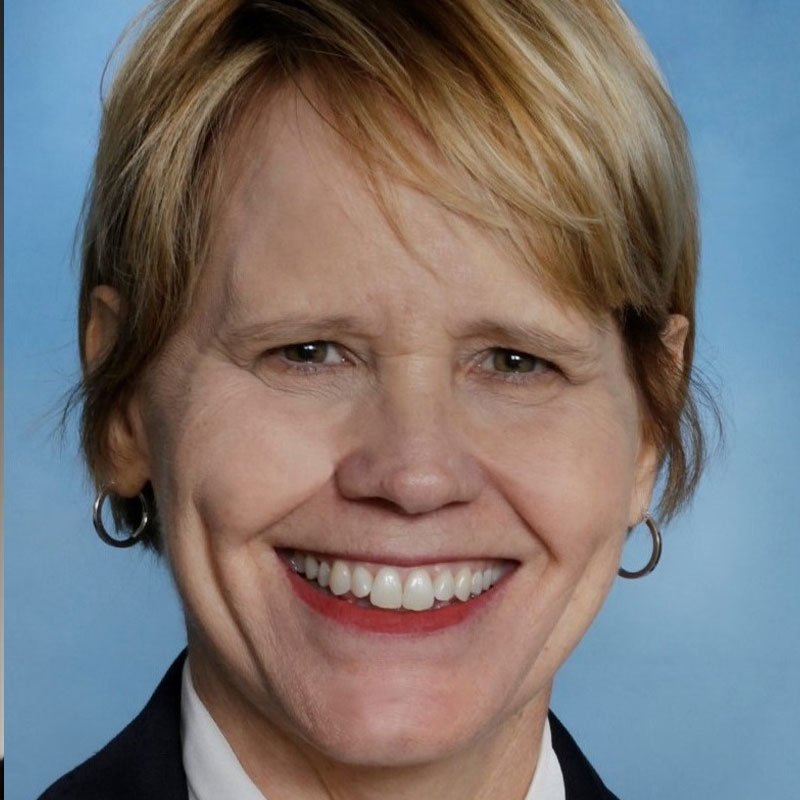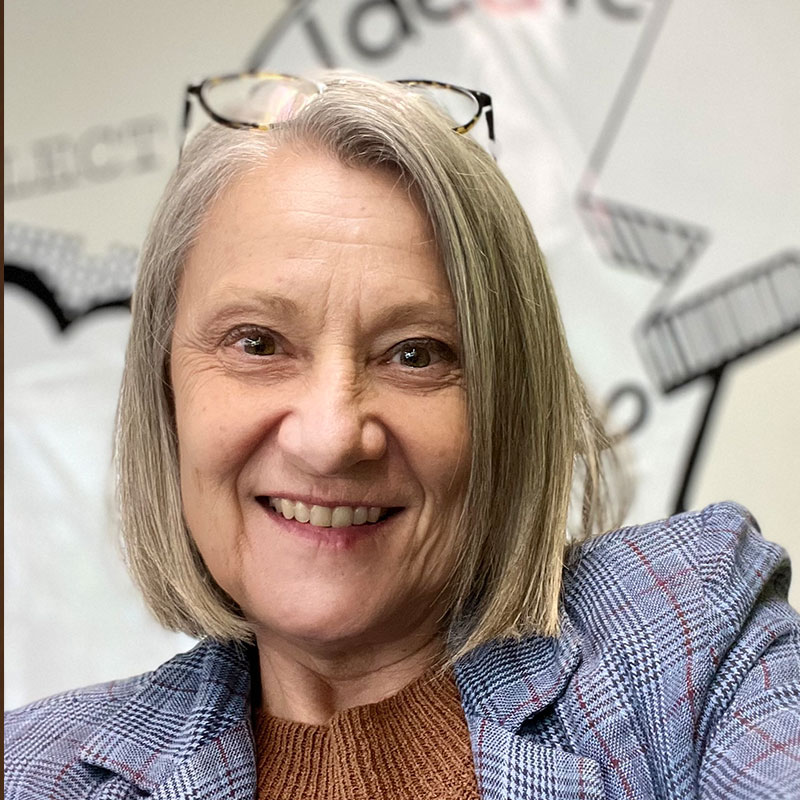WHAT WE DO
The Kentucky Leadership exChange
Building capacity for change among Kentucky’s student success champions.
Embracing change leadership strategies in higher education has the potential to profoundly enhance student success outcomes. The Kentucky Student Success Collaborative is launching a year-long change leadership program designed to provide participants with a comprehensive set of skills and tools to lead strategic change initiatives, foster innovation, and drive continuous improvement within their institutions of higher education.
Throughout the program, participants will be introduced to and apply various methodologies that center the student in the design and implementation of solutions to significantly improve student success outcomes. Participants will learn through guest speakers, case studies, workshops, hands-on activities, peer learning, collaboration, feedback and reflection.
Program Duration: September 2024 – August 2025
Required Program Dates: TBD
September – In person (Frankfort, KY), Module 1: Foundations of Collaborative Action
October – Virtual, Module 2: Design Thinking and Innovation
November – Virtual, Module 3: From Journey Mapping to Blueprint Design
January – Virtual, Module 4: Improvement Science
February – Virtual, Module 5: Adaptive Leadership and Change Culture
March – Virtual, Module 6: Integration and Capstone Project Kick-off
August – In person (Frankfort, KY), Capstone Presentations and Graduation
Capstone Community of Practice Meetings (optional)
April – Virtual
May – Virtual
June – Virtual
July – Virtual
The first cohort of the Kentucky Leadership exChange will be individuals from diverse institutions, functional areas, and roles. Applicants should bring 3-5 years of experience leading teams and cross-functional groups toward a common goal. Applicants will be asked to provide a leadership statement as well as a letter of support from a Vice President or President at your institution.
Essay question prompts include:
1. Leadership Statement
Please provide a statement describing your collaborative leadership experience and approach to leading cross-functional groups toward a common goal and driving change on your campus (up to 500 words).
2. Personal/Professional Goals for the Program
Please share what you hope to gain from participation in this program and how you will use the skills gained to advance student success efforts on your campus (up to 500 words).
Click Here for the Leadership Exchange Application
The application deadline is April 30, 2024.
Individuals from Kentucky public universities, the Kentucky Community and Technical College System, and the Association for Independent Kentucky Colleges are welcome to apply.
In the dynamic landscape of higher education, the pursuit of student success transcends individual departments to become a collective imperative for the entire institution. The essence of ‘Foundations of Collaborative Action’ lies in orchestrating a unified effort across diverse functional areas within the college or university.
This transformative approach to leadership involves mobilizing the whole institution towards a common goal or the resolution of shared challenges. Collaborative action is more than teamwork; it is a dynamic, inclusive methodology that capitalizes on the combined strengths and resources of diverse stakeholders. It is a journey where people come together, pool their expertise, and share responsibilities to achieve outcomes that benefit the entire community.
At its core, collaborative action is based on the premise that we can accomplish more together than any of us can achieve on our own. It is not merely a strategy; it is a philosophy that recognizes the inherent power in unity, guiding the institution towards impactful problem-solving and goal achievement. ‘Foundations of Collaborative Action’ becomes the cornerstone for cultivating a culture of success that transcends individual efforts and propels the entire educational community toward excellence.
1.1 Introduction to Change Leadership
1.2 The Process of Stakeholder Engagement
1.3 Foundations of Collaborative Action
In the realm of higher education, the application of design thinking emerges as a powerful catalyst for problem-solving and innovation. Design thinking, within the context of higher education, represents a human-centered approach to navigating the complexities of the academic landscape. It stands out for its iterative and collaborative essence, offering a distinctive framework for understanding the diverse needs of students, faculty, and other stakeholders.
At its core, design thinking becomes a dynamic process, fostering collaboration and dialogue. It empowers the higher education community to ideate, prototype, and refine creative solutions to intricate problems. By placing emphasis on the evolving needs of the current and prospective students, design thinking becomes an invaluable tool for shaping the future of education, promoting innovation, and enhancing the overall learning experience.
2.1 Design Thinking Fundamentals
2.2 Student-centered Design
In the realm of higher education, methodologies such as journey mapping, process mapping, and blueprint design play pivotal roles in gaining insights into and visually representing the intricate flow and interactions within the educational system. These methodologies prove invaluable for comprehending and enhancing various aspects of the academic experience, from student engagement to administrative processes.
Journey mapping, within the context of higher education, emerges as a powerful tool for visually capturing and understanding a student’s end-to-end experience with the educational system. It becomes a comprehensive illustration of students’ emotions, touchpoints, and experiences at different stages of their educational journey. By utilizing journey mapping, educators and administrators can gain profound insights into students’ perspectives, enabling them to tailor and optimize the overall learning experience.
Process mapping, on the other hand, becomes a visual roadmap that delineates the sequence of steps or activities involved in specific educational processes. In higher education, this methodology aims to provide clarity on how academic and administrative tasks are executed, identifying key stakeholders, responsibilities at each step, and potential areas of improvement.
Together, these methodologies contribute to creating a holistic blueprint of the higher education system, enabling institutions to enhance student experiences, refine operational processes, and ultimately create an environment conducive to academic success.
3.1 Journey Mapping
3.2 Process Mapping
3.3 Blueprint Design
3.4 Service Innovation Strategies
Improvement Science offers a structured approach to change management within the higher education context, providing a systematic framework for identifying, testing, and implementing innovations to enhance student learning outcomes, institutional effectiveness, and overall organizational performance. Rooted in the principles of continuous improvement, Improvement Science empowers educators and administrators to collaboratively address complex challenges and drive meaningful change through evidence-based practices.
In the higher education landscape, Improvement Science serves as a valuable tool for fostering a culture of innovation and data-driven decision-making. By engaging stakeholders across departments and disciplines, institutions can leverage Improvement Science methodologies to identify areas for improvement, set clear goals, and systematically measure progress towards desired outcomes. Through iterative cycles of inquiry, experimentation, and reflection, higher education institutions can tailor interventions to meet the unique needs of diverse student populations, enhance teaching and learning practices, and optimize institutional processes.
Key components of Improvement Science within higher education include:
- Problem Identification
- Collaborative Inquiry
- Plan-Do-Study-Act (PDSA) Cycles
- Continuous Measurement and Feedback
- Scaling and Sustainability
By embracing Improvement Science as a tool for change management, higher education institutions can enhance their capacity to adapt to evolving student needs, navigate complex challenges, and drive positive outcomes for students, faculty, and the broader community.
4.1 Introduction to Improvement Science
4.2 Plan-Do-Study Act (PDSA) Cycle in Action
Adaptive leadership and change culture offer transformative approaches to change management within the higher education context, providing frameworks and strategies for navigating complex challenges, fostering innovation, and driving organizational growth. Rooted in the principles of flexibility, resilience, and continuous learning, adaptive leadership empowers leaders at all levels of the institution to effectively respond to dynamic environments and lead transformative change initiatives.
In the higher education landscape, where institutions face evolving student demographics, technological advancements, and shifting societal expectations, adaptive leadership serves as a critical tool for navigating uncertainty and driving strategic change. Adaptive leaders recognize the interconnectedness of internal and external factors influencing the institution and actively engage stakeholders in co-creating a shared vision for the future. By fostering a culture of collaboration, creativity, and resilience, adaptive leadership cultivates an environment where individuals feel empowered to challenge the status quo, experiment with new ideas, and embrace change as an opportunity for growth.
Key components of adaptive leadership and change culture within higher education include:
- Visionary Leadership
- Adaptive Capacity
- Stakeholder Engagement
- Resilience and Agility
- Continuous Learning and Improvement
- Empowering Change Agents
By embracing adaptive leadership and change culture as tools for change management, higher education institutions can enhance their capacity to navigate complexity, foster innovation, and drive positive outcomes for students, faculty, staff, and the broader community. Adaptive leaders serve as catalysts for transformative change, guiding institutions towards a more resilient, responsive, and future-ready future.
5.1 Adaptive Leadership
5.2 Cultural Transformation for Change
By synthesizing concepts shared throughout the program, higher education leaders can leverage a comprehensive toolkit for addressing challenges, driving innovation, and enhancing the overall student experience and institutional effectiveness. This integrated approach empowers institutions and individuals to adapt to changing needs and trends, seize opportunities for improvement, and achieve their strategic goals in a dynamic and competitive landscape.
Students will form teams of two or three to work on a group project designed to integrate and apply knowledge, skills, and competencies in leading organizational change within a Kentucky higher education institution. Throughout the project, teams collaborate to identify, analyze, and propose solutions to real-world challenges faced by higher education institutions, with a focus on driving positive and sustainable change. Teams will present their projects to the cohort at the final meeting.
6.1 Integration of Concepts
6.2 Capstone Project
Program Duration: September 2024 – August 2025
Module 1: Systemness and Ecosystem Approach
Presenter: Jack Hess, Executive Director, Civic Lab
Date: 9/6/24, 9-4pm ET, In person (Frankfort, KY)
Module 2: Design Thinking and Innovation
Presenter: Lena Blackstock, Process/Practice LLC
Date: 10/2/24, 1-4pm ET, Virtual
Module 3: From Journey Mapping to Blueprint Design
Presenter: Lena Blackstock, Process/Practice LLC
Date: 11/6/24, 10-2pm ET, Virtual
Module 4: Improvement Science
Presenter: Juliette Price, National Association of System Heads (NASH)
Date: 1/15/25, 10-2pm ET, Virtual
Module 5: Adaptive Leadership and Change Culture
Presenter: Dana Jackson, CEO of Dana Jackson Consulting LLC
Date: 2/26/25, 10-2pm ET, Virtual
Module 6: Integration and Capstone Project Kick-off
Presenter: Lilly Massa-McKinley, Executive Director, KYSSC
Date: 3/26/25, 10-2pm ET, Virtual
Capstone Community of Practice Meetings (optional)
- April 16, 2025, 12-1:30pm ET – Virtual
- May 21, 2025, 12-1:30pm ET – Virtual
- June 18, 2025, 12-1:30pm ET – Virtual
- July 16, 2025, 12-1:30pm ET – Virtual
Capstone Presentations and Graduation
Facilitator: Lilly Massa-McKinley, Executive Director, KYSSC
Date: 8/8/25, 10-3pm ET, In person (Frankfort, KY)
In the dynamic landscape of higher education, the pursuit of student success transcends individual departments to become a collective imperative for the entire institution. The essence of ‘Foundations of Collaborative Action’ lies in orchestrating a unified effort across diverse functional areas within the college or university.
This transformative approach to leadership involves mobilizing the whole institution towards a common goal or the resolution of shared challenges. Collaborative action is more than teamwork; it is a dynamic, inclusive methodology that capitalizes on the combined strengths and resources of diverse stakeholders. It is a journey where people come together, pool their expertise, and share responsibilities to achieve outcomes that benefit the entire community.
At its core, collaborative action is based on the premise that we can accomplish more together than any of us can achieve on our own. It is not merely a strategy; it is a philosophy that recognizes the inherent power in unity, guiding the institution towards impactful problem-solving and goal achievement. ‘Foundations of Collaborative Action’ becomes the cornerstone for cultivating a culture of success that transcends individual efforts and propels the entire educational community toward excellence.
1.1 Introduction to Change Leadership
1.2 The Process of Stakeholder Engagement
1.3 Foundations of Collaborative Action
In the realm of higher education, the application of design thinking emerges as a powerful catalyst for problem-solving and innovation. Design thinking, within the context of higher education, represents a human-centered approach to navigating the complexities of the academic landscape. It stands out for its iterative and collaborative essence, offering a distinctive framework for understanding the diverse needs of students, faculty, and other stakeholders.
At its core, design thinking becomes a dynamic process, fostering collaboration and dialogue. It empowers the higher education community to ideate, prototype, and refine creative solutions to intricate problems. By placing emphasis on the evolving needs of the current and prospective students, design thinking becomes an invaluable tool for shaping the future of education, promoting innovation, and enhancing the overall learning experience.
2.1 Design Thinking Fundamentals
2.2 Student-centered Design
In the realm of higher education, methodologies such as journey mapping, process mapping, and blueprint design play pivotal roles in gaining insights into and visually representing the intricate flow and interactions within the educational system. These methodologies prove invaluable for comprehending and enhancing various aspects of the academic experience, from student engagement to administrative processes.
Journey mapping, within the context of higher education, emerges as a powerful tool for visually capturing and understanding a student’s end-to-end experience with the educational system. It becomes a comprehensive illustration of students’ emotions, touchpoints, and experiences at different stages of their educational journey. By utilizing journey mapping, educators and administrators can gain profound insights into students’ perspectives, enabling them to tailor and optimize the overall learning experience.
Process mapping, on the other hand, becomes a visual roadmap that delineates the sequence of steps or activities involved in specific educational processes. In higher education, this methodology aims to provide clarity on how academic and administrative tasks are executed, identifying key stakeholders, responsibilities at each step, and potential areas of improvement.
Together, these methodologies contribute to creating a holistic blueprint of the higher education system, enabling institutions to enhance student experiences, refine operational processes, and ultimately create an environment conducive to academic success.
3.1 Journey Mapping
3.2 Process Mapping
3.3 Blueprint Design
3.4 Service Innovation Strategies
Improvement Science offers a structured approach to change management within the higher education context, providing a systematic framework for identifying, testing, and implementing innovations to enhance student learning outcomes, institutional effectiveness, and overall organizational performance. Rooted in the principles of continuous improvement, Improvement Science empowers educators and administrators to collaboratively address complex challenges and drive meaningful change through evidence-based practices.
In the higher education landscape, Improvement Science serves as a valuable tool for fostering a culture of innovation and data-driven decision-making. By engaging stakeholders across departments and disciplines, institutions can leverage Improvement Science methodologies to identify areas for improvement, set clear goals, and systematically measure progress towards desired outcomes. Through iterative cycles of inquiry, experimentation, and reflection, higher education institutions can tailor interventions to meet the unique needs of diverse student populations, enhance teaching and learning practices, and optimize institutional processes.
Key components of Improvement Science within higher education include:
- Problem Identification
- Collaborative Inquiry
- Plan-Do-Study-Act (PDSA) Cycles
- Continuous Measurement and Feedback
- Scaling and Sustainability
By embracing Improvement Science as a tool for change management, higher education institutions can enhance their capacity to adapt to evolving student needs, navigate complex challenges, and drive positive outcomes for students, faculty, and the broader community.
4.1 Introduction to Improvement Science
4.2 Plan-Do-Study Act (PDSA) Cycle in Action
Adaptive leadership and change culture offer transformative approaches to change management within the higher education context, providing frameworks and strategies for navigating complex challenges, fostering innovation, and driving organizational growth. Rooted in the principles of flexibility, resilience, and continuous learning, adaptive leadership empowers leaders at all levels of the institution to effectively respond to dynamic environments and lead transformative change initiatives.
In the higher education landscape, where institutions face evolving student demographics, technological advancements, and shifting societal expectations, adaptive leadership serves as a critical tool for navigating uncertainty and driving strategic change. Adaptive leaders recognize the interconnectedness of internal and external factors influencing the institution and actively engage stakeholders in co-creating a shared vision for the future. By fostering a culture of collaboration, creativity, and resilience, adaptive leadership cultivates an environment where individuals feel empowered to challenge the status quo, experiment with new ideas, and embrace change as an opportunity for growth.
Key components of adaptive leadership and change culture within higher education include:
- Visionary Leadership
- Adaptive Capacity
- Stakeholder Engagement
- Resilience and Agility
- Continuous Learning and Improvement
- Empowering Change Agents
By embracing adaptive leadership and change culture as tools for change management, higher education institutions can enhance their capacity to navigate complexity, foster innovation, and drive positive outcomes for students, faculty, staff, and the broader community. Adaptive leaders serve as catalysts for transformative change, guiding institutions towards a more resilient, responsive, and future-ready future.
5.1 Adaptive Leadership
5.2 Cultural Transformation for Change
By synthesizing concepts shared throughout the program, higher education leaders can leverage a comprehensive toolkit for addressing challenges, driving innovation, and enhancing the overall student experience and institutional effectiveness. This integrated approach empowers institutions and individuals to adapt to changing needs and trends, seize opportunities for improvement, and achieve their strategic goals in a dynamic and competitive landscape.
Students will form teams of two or three to work on a group project designed to integrate and apply knowledge, skills, and competencies in leading organizational change within a Kentucky higher education institution. Throughout the project, teams collaborate to identify, analyze, and propose solutions to real-world challenges faced by higher education institutions, with a focus on driving positive and sustainable change. Teams will present their projects to the cohort at the final meeting.
6.1 Integration of Concepts
6.2 Capstone Project
2024 Leadership exChange Cohort

Katie Adamchik
University of Louisville
Executive Director, Student Success
Katie Adamchik has over two decades of experience in college access and student success. She holds a bachelor’s degree in African and African American Studies from Earlham College, a master’s in Counseling and Personnel Services, and a PhD in Applied Sociology from the University of Louisville. Currently, she is the Executive Director of Student Success at UofL, overseeing a team that helps students overcome barriers. Outside of work, she enjoys traveling, gardening, and watching her sons play soccer.

Pam Baughman
Centre College
Vice President for Student Success & Advancement
Pam Baughman joined the Admission Office staff in 1993 after graduating from Centre with a B.S. in Psychology. She became the Vice President for Student Success in 2023. Throughout her career, Pam has held leadership roles with the National and Kentucky Associations for College Admission Counseling and has been active on the Centre College Alumni Board and other committees. She mentors students through the Posse Scholars Program and cherishes her experiences at Centre as a student, alumna, staff, and parent. Pam is a native of Northern Kentucky.

Vincent Bingham
Kentucky State University
Director of Career Services
Vincent S. Bingham is the Director of Career Services at Kentucky State University. He holds a Bachelor’s in Business Administration and a Master’s in Educational Policy Studies. With 23 years of experience in education, Vincent has worked in various roles, including Coordinator for Multicultural Affairs and District College and Career Coach. He emphasizes data-driven leadership and resides in Versailles, Kentucky, with his family.

Chris Butcher
Eastern Kentucky University
Associate Director, Transfer Advising & Success
Chris Butcher is the Associate Director of Transfer Advising and Success at Eastern Kentucky University. He leads transfer advising and recruitment and supports new transfer students. A first-generation college graduate, Chris is pursuing a doctoral degree in Educational Leadership. He also serves in the Kentucky National Guard and enjoys outdoor activities like running and hiking.

Lamont Campbell
Family Scholar House
Regional Coordinator
Lamont Campbell is the Regional Coordinator for Family Scholar House at Bluegrass Community & Technical College. Serving students across seven campuses, he addresses housing and technology issues and provides rental and utility assistance. Previously, Lamont was a Student Advocate and Basketball Coach at Bourbon County High School. He holds a BA in Communication from Lambuth University and has worked in various educational and community roles. Lamont is married with three children.

Amy Danzo
Northern Kentucky University
Director
Amy Danzo, M.Ed., is the Director of the Adult and Transfer Center and Testing Services at Northern Kentucky University. She manages adult and transfer recruitment, enrollment, advising, and credit-for-prior learning. At NKU since 2008, she has worked extensively on student success and alternative credit options. Her projects include pathways to higher education and improving the onboarding process for adult and transfer students. Amy is completing her Doctorate of Education in Educational Leadership at NKU.

Pattie Dillon
Spalding University
Dean of Undergraduate Education
Dr. Pattie Dillon is a Professor of History and Dean of Undergraduate Studies at Spalding University. With 21 years at Spalding, she has served in various leadership roles, including Faculty Senate President and Chair of the School of Liberal Arts. Pattie is dedicated to collaborative leadership and enacting positive change on campus.

Ashley Garrett
Southcentral KY CTC
Instructor, Arts & Humanities
Ashley Garrett is an Instructor of English at Southcentral Kentucky Community and Technical College. She is a military spouse, first-generation college graduate, and advocate for underprepared students. Her research focuses on first-generation college students’ success. Ashley holds a BA in English from Lindsey Wilson College and an MA from Western Kentucky University. She is pursuing a Ph.D. in Educational Leadership at the University of Kentucky.

Kayla Gill
University of Kentucky
1G Student Success Team
Kayla Gill specializes in underrepresented student success at the University of Kentucky’s Office for Student Success. A first-generation college student, she is a PhD candidate in Educational Policy Studies and holds a Master’s in Social Work from the University of Houston. Kayla’s work focuses on policies and practices that support diverse first-generation students, promoting academic success and a sense of belonging.

John Gregory
Education & Labor Cabinet & UofL
Executive Director
Dr. John C. Gregory is the Executive Director of the Office of Adult Education for the State of Kentucky. He holds a Ph.D. in Public Policy and Administration from Virginia Commonwealth University, an M.S. in Criminal Justice, and a B.A. in History. Dr. Gregory served 20 years in the Army, retiring as a Lieutenant Colonel. He has extensive experience in higher education and is a lecturer at the University of Louisville. Dr. Gregory is active in several professional organizations and community boards.

Chris Hetherington
KCTCS System Office
Executive Director of Strategic Enrollment Management
Christopher has 18 years of experience in higher education and 17 years as a church music director. At the KCTCS System Office, he oversees the 24/7 student contact center, a team of 15 enrollment coaches supporting 40,000 adult applicants annually, and manages five technology systems for student communication, recruiting, and retention. He is developing the KCTCS mental health strategy with Jed Foundation and leads the 2024-2025 Student Leadership Academy. Christopher holds degrees from California State University, Long Beach, USC, Embry-Riddle Aeronautical University, and will complete his doctorate in education from Liberty University in August 2024.

Emily Howard
Bellarmine University
Director, Carver Oll
Dr. Emily P. D. Howard is the Director of the Office of Identity and Inclusion at Bellarmine University. With over a decade of experience in student affairs and diversity, equity, and inclusion, she oversees educational programs around identity and social justice. Dr. Howard holds a doctorate in Education with a concentration in Organizational Leadership and is passionate about supporting Black Millennial student affairs professionals.

Christopher Jenson
Western Kentucky University
Assistant VIce President for Student Success
Christopher Jensen is the Assistant Vice President for Student Success at Western Kentucky University. With 15 years at WKU, he oversees academic advising, career development, transfer support, and retention programs. He is working on his dissertation in Educational Leadership at the University of Kentucky. Outside of work, Christopher enjoys raising his three daughters, including twins.

Rebecca Johnson
Southeast CTC
Vice President of Student Affairs
Dr. Rebecca Johnson is the Vice President of Student Affairs at Southeast Kentucky Community and Technical College and the Campus Director for its largest campuses. With 28 years of experience, she holds a Ph.D. in Community College Leadership from Mississippi State University and degrees from Union College and SKCTC. Rebecca has served in various roles, including Financial Aid Director and Associate Dean, and is committed to student success.

Saundra Kimberlain
Elizabethtown CTC
Director of the Robbins University Center & Transfer
Saundra Kimberlain is the Director of ECTC’s Robbins University Center and Transfer. With 23 years in higher education, she has served as an assistant professor, director of advising, and program coordinator. Saundra holds degrees from the University of Kentucky and Western Kentucky University. She is active in transfer peer teams and student pathways projects and has presented at national conferences.

Leslie Maxie
Bellarmine University
Dean of Students
Leslie Maxie is the Dean at Bellarmine University with over 20 years of experience in student affairs. She has actively contributed to state and regional professional organizations and served as president of the Kentucky College Personnel Association and the Kentucky Housing Officer’s Association. Leslie holds degrees from the University of Louisville and Bellarmine University, including a Doctorate in Leadership in Higher Education. She cherishes time with her daughter Libby.

Kausha Miller
Bluegrass CTC
Assistant Dean of Student Success & Retention
Kausha Miller is a Professor of Mathematics and Assistant Dean of Student Success & Retention at Bluegrass Community & Technical College. With over two decades of experience in teaching, administration, and student success initiatives, she has developed programs supporting diverse student needs and secured several grants. Kausha is active in state education teams and holds degrees in Mathematics from Southeast Missouri State University. She is passionate about assessment, placement advising, and gateway course success.

Maggie Price
Maysville CTC
Director of Student Success
Maggie Price is the Director of Student Success at Maysville Community and Technical College. She teaches communication and serves incarcerated students. Maggie holds degrees in public relations, communication, and a doctoral degree from Eastern Kentucky University. She enjoys true crime podcasts and is a proud stepmom and aunt.

Matthew Purdy
Murray State University
Director of Career Services
Matt Purdy is the Director of Career Services at Murray State University. With over 17 years of experience, he has implemented initiatives like a Career Closet and a new online career management platform. Matt holds an MBA and a Bachelor’s in Marketing. He lives in Murray with his wife and three children.

Heidi Reid
Morehead State University
AVP for Enrollment Services
Dr. Reid has 20 years of experience in higher education, working in Academic and Student Affairs at various institutions including large universities, private nonprofits, community colleges, and R1 universities. She is the Assistant Vice President of Enrollment Management at Morehead State University, overseeing recruitment, scholarships, and financial aid. Previously, she spent 9.5 years at the University of Louisville, leading admissions and retention for the JB Speed School of Engineering. Dr. Reid earned her PhD from UofL, focusing on the transition of students from Appalachia. She is recognized for her contributions to admissions, retention, and inclusion programming. Personally, she coaches youth volleyball, volunteers with the Nicholas County Youth football league, and enjoys running and crime documentaries.

Tamara Russell
Jefferson CTC
Assistant Vice President
Tamara is currently working as the Assistant Vice President for Belonging and Community Engagement at Jefferson Community and Technical College and as a Senior Lecturer I at the University of Louisville. She has a deep passion for creating a more inclusive, accessible and equitable public education system; youth advocacy, restorative justice and racial justice efforts.

Sarah Shaaban
Evolve 502
Scholarship and Student Success Director
Sarah Shaaban is the Scholarship and Student Success Director at Evolve502. She holds a bachelor’s in psychology and a master’s in clinical psychology. With 16 years in higher education, she has worked at Illinois State University, Columbia College Chicago, and Arrupe College. Sarah is passionate about leadership development, project management, and making college accessible. She enjoys running, hiking, and gardening.

Savannah Sipple-McGraw
Bluegrass CTC
Associate Professor, Assistant Dean of Humanities
Savannah Sipple-McGraw is an Associate Professor of English and Assistant Dean of Humanities at Bluegrass Community and Technical College. She is also a writer and editor, living with her wife and their two dogs.

Sarah Stevens
University of Louisville
Executive Director of Advising
Sarah E. Stevens is the Executive Director of Advising at the University of Louisville. With experience in advising, honors programs, and international programs, she focuses on student success through intersectionality and social justice. Sarah enjoys playing board games, writing, and volunteering in cat rescue. Originally from New Jersey, she has strong opinions about pizza and bagels.

Amanda Stonecipher
Indiana University Southeast
Vice Chancellor for Student Engagement
Amanda Stonecipher is the Vice Chancellor for Student Engagement at Indiana University Southeast. She has worked in various roles at IU Southeast since 2012, overseeing services like Accessible Educational Services and Career Development. Amanda holds a Master’s in College Student Personnel and a Bachelor’s in Sociology. She is pursuing a PhD from the University of Louisville.

Barb Tipmore
Owensboro CTC
Associate Dean of Student Affairs
Barb Tipmore is the Associate Dean of Student Affairs at Owensboro Community and Technical College, serving as director of the Counseling Center, coordinator of Accessibility Services, Title IX coordinator, advisor, and student conduct lead. She holds a master’s in secondary guidance counseling and a Rank I certification in elementary guidance from Western Kentucky University. Passionate about student success, Barb enjoys working with dedicated colleagues and spending time with her wife Christina and their three cats, Cash, Lucy, and Elly.

Stephanie Tolliver Hyman
Southcentral CTC
Dean, Arts and Humanities
Stephanie Tolliver Hyman is the Dean of Arts and Humanities at Southcentral Kentucky Community and Technical College. She holds a Master of Arts in English and is a doctoral candidate in Higher Education Leadership. Stephanie’s research focuses on student retention and success in corequisite English. With over 15 years of teaching experience, she is committed to student success.

Lara Vance
Eastern Kentucky University
Dean of Students
Dr. Lara Vance is the Dean of Students at Eastern Kentucky University. She holds degrees in English Education, Secondary Education, and Educational Leadership. With nearly 30 years in education, Lara has developed EKU’s Student Success Center and other student support initiatives. She enjoys kayaking, gardening, and spending time with her family.

Kristen Wallitsch
Bellarmine University
Dean of Student Success & International Programs
Dr. Kristen Wallitsch is the Dean of Student Success & International Programs at Bellarmine University. With over 15 years of experience, she leads student success efforts and oversees the Student Success Center. Kristen holds a Ph.D. in Studies in Higher Education from the University of Kentucky and has a background in academic support services, advising, and international learning. Her research interests include student learning outcomes, first-generation college students, and social justice. She has received awards for her work in predictive analytics and assessment.

Emily Weideman
Morehead State University
Director of Housing
Emily Weideman is the Director for Housing and Residential Education at Morehead State University. With 15 years in Residence Life, she has worked in various states, including California, Montana, and Pennsylvania. Emily holds degrees from Arcadia University and Keele University. She is excited to collaborate with other leaders in the Kentucky Student Success Collaborative.

Deborah Whistler
Spalding University
Director of Design Thinking & Social Innovation
Deborah Whistler is an Associate Professor of Art at Spalding University and the Director of the Career Design Center. She teaches Design Thinking and Creative Problem Solving, focusing on applying creativity to real-life issues. Deborah holds a BFA in Art & Design and an MFA in Fine Arts. She is a practicing artist who enjoys gardening, spending time with her grandchildren, and traveling.

Beth Willey
University of Louisville
Vice Provost, Undergraduate Education
Beth Willey is a Professor of English and Vice Provost of Undergraduate Education at the University of Louisville. A faculty member since 1996, she has focused on African Literature and undergraduate education. Beth is dedicated to enhancing the undergraduate experience at UofL and enjoys collaborating with colleagues to improve student success.

Joshua Williams
Bellarmine University
Associate Director of Strategic Enrollment Partnerships
Joshua O.D. Williams, a Miami native and proud Bethune-Cookman University and Alabama A&M University graduate, has dedicated his life to education and community service. As a first-generation, low-income student, he established a scholarship for those in financial need and was recognized for his resilience during homelessness. He has pursued political work in Washington, DC, taught in Florida, and contributed to community service initiatives. Joshua is a doctoral candidate in Leadership in Higher Education at Bellarmine University and the Associate Director of Strategic Enrollment Partnerships. He aspires to become a college or university president.
Leadership exChange Panel Speakers

Lena Blackstock
Process/Practice
Partner and Managing Director
Lena is Partner and Managing Director at Process/Practice, a research and placemaking studio in Columbus, IN. She collaborates with organizations to create resilient communities and systems, with clients like Fahe, ROI, Indiana University, and United Way. With over 15 years of experience, Lena focuses on building systems and cultures of learning to navigate complexity. She has led Research teams at Asurion and HashiCorp and worked on international projects in design strategy and service design. Lena has lived in Scotland, Germany, Canada, and now resides in Columbus, IN with her husband and two kids.

Jack Hess
CivicLab
President, Co-Founder
Jack Hess is the President and co-founder of CivicLab, a nonprofit institute dedicated to advancing the practice of community collaboration. He has partnered with hundreds of communities across the country, teaching collaborative teams how to better approach complex social problems by redesigning the way they work together. Prior to his work with the CivicLab, he was the President of the Columbus Area Chamber of Commerce. Within two years of implementing its new strategic plan, the Columbus Chamber was named the Indiana Chamber of the Year. One year later, the American Chamber of Commerce Executives (ACCE) presented the Columbus Chamber with the National Chamber of the Year Award.

Lilly Massa-McKinley
The Kentucky Student Success Collaborative
Executive Director
Lilly is the Executive Director of the Kentucky Student Success Collaborative, a statewide program backed by CPE in supporting greater degree completion and successful transition into early career attainment. Lilly has over 15 years of experience in higher education, working in crisis counseling, community engagement, access support, career development, and strategic partnerships. She led collaborative action networks for the 55,000 Degrees Initiative in Louisville, KY, enhancing systems coordination for student access and completion. At Bellarmine University, she served as Assistant Vice President for Career Development and Strategic Partnerships, focusing on collaboration and student success. Lilly holds a bachelor’s from Wake Forest, a master’s from Indiana University, and a doctorate from Vanderbilt University.

Dana Jackson
Dana Jackson Consulting
CEO
Dana Jackson is the CEO of Dana Jackson Consulting, a Louisville-based firm specializing in results-based leadership and urban engagement strategies. Formerly, she was Executive Director of the Network Center for Community Change (NC3), where she expanded the organization to a nationally respected non-profit. With over 32 years of experience, Dana has held various state roles, including Deputy Commissioner for the Department of Community Based Services. Her firm consults for major organizations like the Annie E. Casey Foundation and StriveTogether. Dana holds degrees from California State University, Northridge, and Spalding University. She is married to Dr. Eliot Thompson and has three sons.

Juliette Price
Institute for Systems Innovation and Improvement at NASH
Senior Improvement Science Coach
Juliette is the Senior Improvement Science Coach at the Institute for Systems Innovation and Improvement at NASH. She designed the NASH Improvement Model to integrate improvement science into higher education, enhancing economic mobility and democracy. Juliette believes in systems thinking, collaborative problem solving, and data-informed solutions. She has experience in health care, higher education, and social care, and trains teams in the IHI’s Breakthrough Improvement Model. Previously, she led The Albany Promise, a collective impact partnership improving economic mobility in New York. Juliette was awarded the White House Champion of Change award in 2016 for her work. She has also worked on statewide education initiatives with the SUNY Chancellor and Governor Andrew Cuomo’s New NY Education Reform Commission.

Receive Email Updates Regarding the Kentucky Leadership exChange
As the program is being finalized, we will update this webpage and also share information directly with interested partners.
To receive email updates regarding the Kentucky Leadership exChange, please complete the form.
